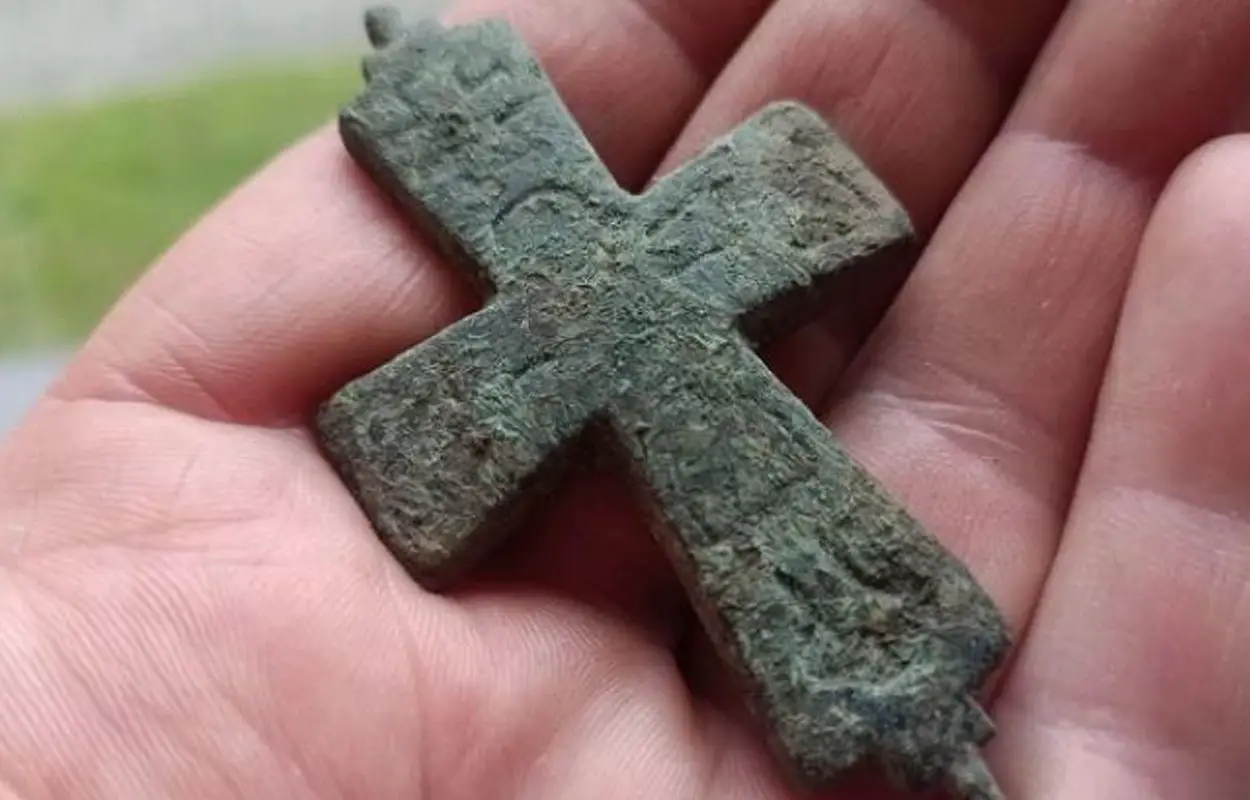Archaeologists conducting excavations of a knights stronghold have uncovered a rare cross-shaped reliquary.
The discovery was made in the town of Woźniki, located in Lubliniec County, Poland. The structure was a residence of a knight from the 14th to 15th century, which was first explored during the mid-19th century by the Archaeology Department of the Upper Silesian Museum in Bytom.
Since then, extensive agricultural activity has mostly ploughed out and destroyed any visible archaeological remains above the surface. However, researchers from the University of Łódź recently conducted a geophysical study, revealing traces of the stronghold and supporting buildings.
This was followed by an archaeological investigation, where the remains of the lower floor of the structure and a furnace built at the end of the 13th or 14th century was uncovered. Archaeologists also found numerous artefacts and objects, including clay ceramic vessels, door fittings, a padlock, a key, nails, hooks, and militaria consisting of several crossbow bolt heads and three iron stirrups.
According to the researchers: “A rare find discovered by the team is an enkolpion, a cross-shaped reliquary made of a copper alloy. Due to its poor condition, atefact was sent to Wrocław for conservation. Enkolpion (from Greek: “en” – on, “kolpos” – breast) was worn by Christians on the chest; inside there were relics or quotations from the Holy Scripture.”
Enkolpions were an important symbol of the Christian faith, generally worn by Eastern Orthodox and Eastern Catholic bishops. Examples of enkolpions have been found in various forms – from oval, round, four-cornered, and are often surrounded by jewels (usually paste) and topped by an Eastern-style mitre. In antiquarian contexts, an “encolpion cross” is a pectoral cross normally associated with the Byzantine period.
Header Image Credit : Institute of Archeology of the University of Lodz





